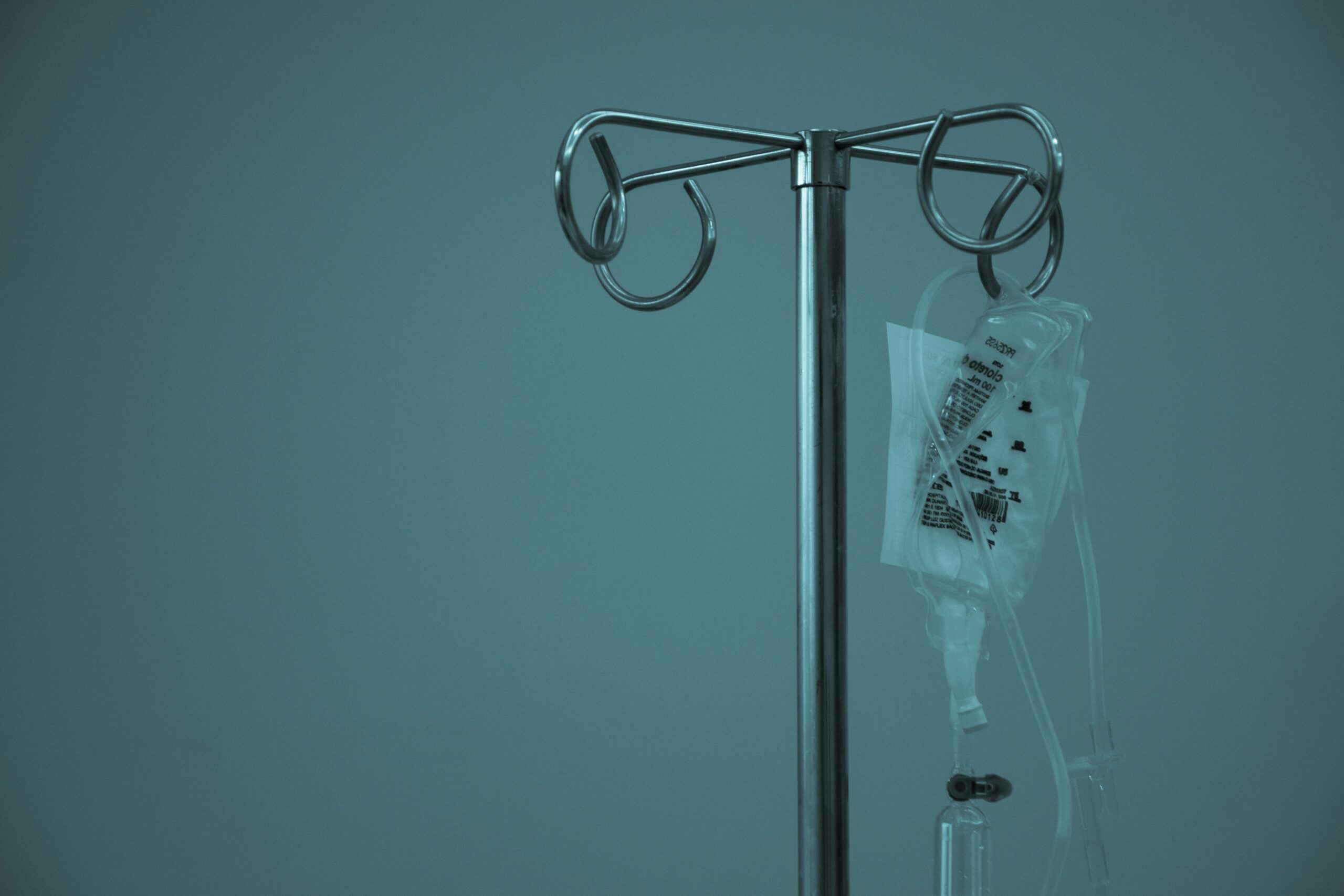
Bound is a contronym – a word that is the opposite of itself. You can be bound – tied down forcefully. Or, you can be bound – destined to go; intending to go. Bound is a reminder that words were made by humans, and humans are bound to make mistakes.
Bound is a contronym – a word that is the opposite of itself. You can be bound – tied down forcefully. Or, you can be bound – destined to go; intending to go. Bound is a reminder that words were made by humans, and humans are bound to make mistakes.

Photo by Marcelo Leal on Unsplash

Photo by Marcelo Leal on Unsplash
For as long as I can remember, visiting my Babaji (grandfather) had been an unchanging, familiar affair. He would always occupy the same spot on the couch, watching TV with a gentle smile. It was a shock to walk in one day and find the TV silent. Even more shocking to see that he’d suddenly become so thin. His voice was softer. His smile was gone, his illness a silent spider relentlessly weaving its web in deep shadowed corners of our worried minds.
Babaji passed away last November. But not before being cut open, perforated with tubes, hooked up to machines, and assaulted with drugs. This harrowing journey is called futile care: cutting edge medical technology is aggressively beared upon a grievously ill person near the end of their life, and there is nothing more to do but endure more pain. At its high cost, futile care only buys misery – a brief and agonizing prolongation of life, haunted by death looming in the corner.
The word ‘futile’ comes from futilis in Latin, meaning ‘leaky’. In the Greek myth, the daughters of King Danaus killed their husbands and were condemned to fetch water in leaky sieves, an action doomed to failure by its very nature. ‘Futile’ care is typically given to patients who are brain dead, in end stages of chronic or terminal illness, or elderly with poor prognosis, where aggressive intervention offers no chance of meaningful recovery and only worsens quality of life (Aghabarary & Nayeri, 2016). So why would families opt for foredoomed futile care at all?
“The age-old wisdom that doctors are akin to Gods has taken on a contemporary twist, as the conviction that enchanting medical technologies can usurp death.”
Because hope sells. Think about how many times you’ve seen a CPR miracle in the media. In real life, The Guardian reports that ‘only 3% of over-80s survive CPR’ and that ‘CPR can be a traumatic experience […]. In the unlikely event of a palliative patient actually surviving CPR, they typically will not regain consciousness’ (Taubert, 2023). This comes across as a surprise to most of us, because our media sensationalizes medical miracles and propagates an economy of hope, nourishing unrealistic expectations about treatment and recovery. The age-old wisdom that doctors are akin to Gods has taken on a contemporary twist, as the conviction that enchanting medical technologies can usurp death. Damps et al. (2022) found that not only lay people, but even physicians have come to believe that a patient only dies because the medicine can’t save them, not because life is naturally limited by death! It is a sound reminder that Hippocrates, the father of medicine himself, refused to treat ‘those who are overmastered by their disease,’ because ‘in such cases, medicine is powerless.’ In cases of futile care, end-of-life bioethics researcher John Hardwig calls hope ‘fragile’ (Hardwig, 2005). No matter how well-fortified against doubt, it will be shattered, precisely because futile care is bound to fail by definition.
The spectacular imagery of modern medical technology not only inflates hope, but also pressures families to exhaust all options, because they feel a sense of duty and obligation. Yale compiled the clinical findings of various clinicians into a comprehensive volume on futile care (Yale Interdisciplinary Center for Bioethics, 2005), where they delved into how futile care is driven by a ‘never say never’ attitude. Families realize care is futile when doctors communicate the ineffectiveness of treatment, the absence of improvement, or the inevitable progression of an illness. But it is extremely stressful for families to make ‘life or death’ decisions about loved ones – if made to feel that they are being pushed to ‘pull the plug,’ many will balk and turn aggressively overconfident about the patient’s prognosis. Families often believe that unless whatever is wrong gets fixed, they have not done everything possible. In fact, a recent UCLA study by Neville et al. (2020) found that families are skeptical that any medical treatment could possibly even be inappropriate or futile! The pressure and attitude to not give up stems from the symbolism in our society of ‘fighting’ and ‘battling’ illness, as if stopping treatment would mean deriding the patient. Withdrawing from futile care, even knowing that it is futile, nevertheless feels like abandonment.
“Families often believe that unless whatever is wrong gets fixed, they have not done everything possible.”
This imperative to try everything possible is further catalyzed by grief. Futile care serves as a way for families to postpone an inevitable death, which according to Hardwig is an attempt to avoid confronting its truth, to evade reality. The Yale volume discusses how it can take several weeks before families accept the futility of a treatment. It takes time to come to terms with loss, to envision how one will go on, and to deal with the patient’s final affairs. Opting for futile care is a desperate attempt to buy this time. But with each tiny second ticking with the force of a hammer’s blow, are we actually prolonging life, or are we prolonging death, distress and suffering? Refusing futile care does not mean that the invaluable role of medicine has to end. Rather, the goal can turn from treatment to well-being. Medicine can now aim for the patient’s happiness, comfort, and much-needed relief from suffering.
Confusing and traumatic for families. Demoralizing for doctors. Dehumanizing for patients. Futile care should not be called care at all. It is futile hope, futile pressure, futile grief. But like humans, words are fallible. Babaji was bound for heaven, but bound to hell. <<
References
– Aghabarary, M., & Nayeri, N. D. (2016). Medical futility and its challenges: a review study. DOAJ (DOAJ: Directory of Open Access Journals), 9, 11. https://doaj.org/article/0f366841744d4ba4805a5f0cf081faec
– Damps, M., Gajda, M., Stołtny, L., Kowalska, M., & Kucewicz‐Czech, E. (2022). Limiting futile therapy as part of end-of-life care in intensive care units. Anaesthesiology Intensive Therapy, 54(3), 279–284. https://doi.org/10.5114/ait.2022.119124
– Hardwig, J. (2005). Families and Futility: Forestalling demands for futile treatment. The Journal of Clinical Ethics, 16(4), 335–344. https://doi.org/10.1086/jce200516408
– Jox, R. J., Schaider, A., Marckmann, G., & Borasio, G. D. (2012). Medical futility at the end of life: the perspectives of intensive care and palliative care clinicians. Journal of Medical Ethics, 38(9), 540–545. https://doi.org/10.1136/medethics-2011-100479
– Kasman, M. D. L. (2004). When is medical treatment futile? Journal of General Internal Medicine, 19(10), 1053–1056. https://doi.org/10.1111/j.1525-1497.2004.40134.x
– McConnell, K. (2023, May 10). An ICU nurse reflects on futile care. The Atlantic. https://www.theatlantic.com/ideas/archive/2023/05/icu-nurse-palliative-care-ventilators-intubation/673984/
– One third of elderly patients receive futile treatment before they die – Palliative Care Australia. (n.d.). https://palliativecare.org.au/story/one-third-of-elderly-patients-receive-futile-treatment-before-they-die/
– Rivero, E. (2020, April 30). Public does not grasp idea of ‘futile treatment’ for critically ill patients. UCLA. https://newsroom.ucla.edu/releases/what-does-it-mean-when-a-treatment-wont-help
– Smith DH, McKhann C, Peppard C, Duffy T, Rosenbaum S, eds. What’s the Point? Clinical Reflections on Care that Seems Futile. New Haven, CT: Yale Interdisciplinary Center for Bioethics Working Group on Medical Futility; 2005.
– Swetz, K. M., Burkle, C. M., Berge, K. H., & Lanier, W. L. (2014). Ten common questions (and their answers) on medical futility. Mayo Clinic Proceedings, 89(7), 943–959. https://doi.org/10.1016/j.mayocp.2014.02.005
– Willmott, L., White, B. P., Gallois, C., Parker, M., Graves, N., Winch, S., Callaway, L., Shepherd, N., & Close, E. (2016). Reasons doctors provide futile treatment at the end of life: a qualitative study. Journal of Medical Ethics, 42(8), 496–503. https://doi.org/10.1136/medethics-2016-103370
– Zocimporter. (2023, June 14). How doctors die. Zócalo Public Square. https://www.zocalopublicsquare.org/2011/11/30/how-doctors-die/ideas/nexus/
For as long as I can remember, visiting my Babaji (grandfather) had been an unchanging, familiar affair. He would always occupy the same spot on the couch, watching TV with a gentle smile. It was a shock to walk in one day and find the TV silent. Even more shocking to see that he’d suddenly become so thin. His voice was softer. His smile was gone, his illness a silent spider relentlessly weaving its web in deep shadowed corners of our worried minds.
Babaji passed away last November. But not before being cut open, perforated with tubes, hooked up to machines, and assaulted with drugs. This harrowing journey is called futile care: cutting edge medical technology is aggressively beared upon a grievously ill person near the end of their life, and there is nothing more to do but endure more pain. At its high cost, futile care only buys misery – a brief and agonizing prolongation of life, haunted by death looming in the corner.
The word ‘futile’ comes from futilis in Latin, meaning ‘leaky’. In the Greek myth, the daughters of King Danaus killed their husbands and were condemned to fetch water in leaky sieves, an action doomed to failure by its very nature. ‘Futile’ care is typically given to patients who are brain dead, in end stages of chronic or terminal illness, or elderly with poor prognosis, where aggressive intervention offers no chance of meaningful recovery and only worsens quality of life (Aghabarary & Nayeri, 2016). So why would families opt for foredoomed futile care at all?
“The age-old wisdom that doctors are akin to Gods has taken on a contemporary twist, as the conviction that enchanting medical technologies can usurp death.”
Because hope sells. Think about how many times you’ve seen a CPR miracle in the media. In real life, The Guardian reports that ‘only 3% of over-80s survive CPR’ and that ‘CPR can be a traumatic experience […]. In the unlikely event of a palliative patient actually surviving CPR, they typically will not regain consciousness’ (Taubert, 2023). This comes across as a surprise to most of us, because our media sensationalizes medical miracles and propagates an economy of hope, nourishing unrealistic expectations about treatment and recovery. The age-old wisdom that doctors are akin to Gods has taken on a contemporary twist, as the conviction that enchanting medical technologies can usurp death. Damps et al. (2022) found that not only lay people, but even physicians have come to believe that a patient only dies because the medicine can’t save them, not because life is naturally limited by death! It is a sound reminder that Hippocrates, the father of medicine himself, refused to treat ‘those who are overmastered by their disease,’ because ‘in such cases, medicine is powerless.’ In cases of futile care, end-of-life bioethics researcher John Hardwig calls hope ‘fragile’ (Hardwig, 2005). No matter how well-fortified against doubt, it will be shattered, precisely because futile care is bound to fail by definition.
The spectacular imagery of modern medical technology not only inflates hope, but also pressures families to exhaust all options, because they feel a sense of duty and obligation. Yale compiled the clinical findings of various clinicians into a comprehensive volume on futile care (Yale Interdisciplinary Center for Bioethics, 2005), where they delved into how futile care is driven by a ‘never say never’ attitude. Families realize care is futile when doctors communicate the ineffectiveness of treatment, the absence of improvement, or the inevitable progression of an illness. But it is extremely stressful for families to make ‘life or death’ decisions about loved ones – if made to feel that they are being pushed to ‘pull the plug,’ many will balk and turn aggressively overconfident about the patient’s prognosis. Families often believe that unless whatever is wrong gets fixed, they have not done everything possible. In fact, a recent UCLA study by Neville et al. (2020) found that families are skeptical that any medical treatment could possibly even be inappropriate or futile! The pressure and attitude to not give up stems from the symbolism in our society of ‘fighting’ and ‘battling’ illness, as if stopping treatment would mean deriding the patient. Withdrawing from futile care, even knowing that it is futile, nevertheless feels like abandonment.
“Families often believe that unless whatever is wrong gets fixed, they have not done everything possible.”
This imperative to try everything possible is further catalyzed by grief. Futile care serves as a way for families to postpone an inevitable death, which according to Hardwig is an attempt to avoid confronting its truth, to evade reality. The Yale volume discusses how it can take several weeks before families accept the futility of a treatment. It takes time to come to terms with loss, to envision how one will go on, and to deal with the patient’s final affairs. Opting for futile care is a desperate attempt to buy this time. But with each tiny second ticking with the force of a hammer’s blow, are we actually prolonging life, or are we prolonging death, distress and suffering? Refusing futile care does not mean that the invaluable role of medicine has to end. Rather, the goal can turn from treatment to well-being. Medicine can now aim for the patient’s happiness, comfort, and much-needed relief from suffering.
Confusing and traumatic for families. Demoralizing for doctors. Dehumanizing for patients. Futile care should not be called care at all. It is futile hope, futile pressure, futile grief. But like humans, words are fallible. Babaji was bound for heaven, but bound to hell. <<



